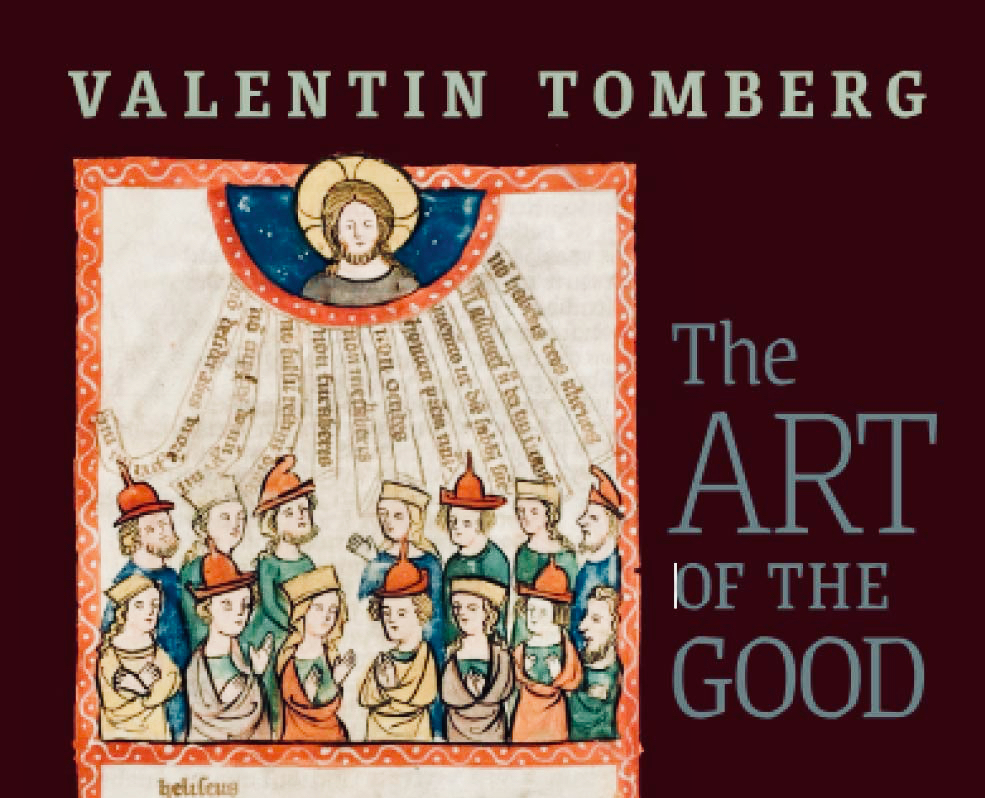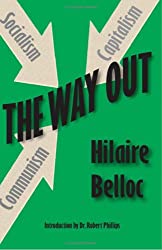
2023 Preface: Looking Back to 2009:
Dear Lector,
Below you will find the first of a series of four posts from 2009. These concern my first encounter, fourteen years ago, with Valentin Tomberg’s astonishing works on jurisprudence, the first of which has (at last!) been made widely available in English as The Art of the Good (and which I have reviewed here).
It may help to clarify things in this four part series, if we point out that 1944 book’s original title was Degeneration and Regeneration of Jurisprudence—and that it signalled an astonishing break from Tomberg’s Anthroposophical past.
It also seems helpful to list this four-part 2009 series with links—as well as two much more recent related posts—as this may further serve to clarify matters, matters which are not only extraordinarily important for us at this website, but we believe for the very future of the West.
Thus, we list:
First Part: The Moral Oxygen of Valentin Tomberg
Second Part: Stunning New Vistas—Valentin Tomberg’s Catholic Jurisprudence
Third Part: One Must Have Courage to Recognise the Fatal Tree
Fourth Part: Tomberg turns to the LIFE of the Church …
Related Entries:
We pray the various Tomberg videos featured on all these pages may also help to illumine these extraordinary things. And now back to my former self, writing in 2009—Roger Buck
2009—On Initially Encountering Tomberg’s Art of the Good
Last time, we began speaking of Valentin Tomberg …
Now Valentin Tomberg converted to Catholicism during the Second World War. And the first of his writings from a Catholic perspective, concern jurisprudence and were originally written and published in German. Only recently have they been made available in English and as mentioned in my last entry, made available to me by a beloved friend …
These Catholic, legal writings are striking my soul very deeply indeed. I feel re-engaged with an old, familar, beautiful quality that has meant far, far more than I can tell you these last twelve years of my life. Re-engaged that is, with the bracing, vitalising moral oxygen, which I have found is to be had from attempting to scale the towering summit of the moral genius of Valentin Tomberg.
Morality … morality … it is a precious gift indeed to drink in again this precious draught of Valentin Tomberg´s clear, limpid moral logic. Moral logic – that strange, apparent non-sequitur, which nonetheless I find can be experienced reading Tomberg as he probes and probes, searching for the deepest moral meaning and justification of things.
And as one reads, one may begin to see that moral logic is not a non-sequitor, but that things only become truly rational, the more they are wedded to the moral element, rather than stripped of it …
Stripped of it. So much of Tomberg’s writing points to the catastrophe of the “evolution” in recent centuries toward stripping out the (non-empirical) moral dimension, in favour of a rationality that is to be supposedly purified thereby, but which “rationality” Tomberg argues can only become more and more absurd, and more and more catastrophic …
Now the catastrophic is very much present in these legal writings, which Tomberg tells us were commenced:
at a time when the continous drone of four-engine bombers and the frequent quaking of windows and doors due to explosions in the neighbourhood, served as a constant reminder of Death´s proximity, thus inviting profound contemplation, which is what happens when death and much suffering is near.
These serious circumstances gave rise to the work at hand, which it is specifically meant for those readers who are still serious, even today, i.e. who are conscious of their responsibility for the happiness or unhappiness of humanity(Emphasis in original) …
[The work] is dedicated to all innocent victims of unrestricted state sovereignty all over the earth – and especially to the fresh children’s graves in Warsaw, Rotterdam, Belgrade, London, Coventry, Kiev, Odessa, Sebastopol, Cologne, Hamburg, Stuttgart, and dozens of other cities, towns and villages, where children lie buried as the victims of “total attacks” from the air – and to the mothers of these children.
Yes here in these writings, we have revealed profound moral processes of Valentin Tomberg, as he has been clearly rethinking many things and leaving behind forever so-called Esoteric Christianity for the conviction that:
Christianity … is one and indivisible. One should not – one cannot! – separate from so called exoteric Christianity … so-called esoteric Christianity. Esoteric Christianity is entirely within exoteric Christianity; it does not exist – and cannot exist – separately from it. (This quotation from Meditations on the Tarot later in his life is discussed further here at this site).
And here in these legal studies, we also have the most eloquent of arguments for the need to counter the degeneration of the last centuries. Strictly speaking, the works speak of “the degeneration of jurisprudence” whereby jurisprudence became stripped of the moral dimension, of which a catastrophic correlation – at least – Tomberg eloquently argues has been law used to justify naked aggression, law used to justify “unrestricted state sovereignty” and all its victims …
But as much as these are legal writings, they are also philosophical writings of a Platonic nature, testifying to the dire consequences of turning away from the moral-spiritual-religious in favour of the moral absurdity of reductionism …
And as such, they have a great deal to offer us today. One shudders to think what the deceased author would have thought—not simply of the unlimited sovereignty of states, but of the beginnings of unlimited sovereignty of business, which commenced with the massive deregulation of the 1980s—a deregulation he would also no doubt link to the “degeneration of jurisprudence” …
Additionally, those seeking to understand Valentin Tomberg’s unexpected conversion not merely to Catholicism, but to a very traditional Catholicism, will find very much of relevance here.
For just as Tomberg sees so much danger in a law stripped of morality, he sees the same danger in the attempt to strip thinking of religious experience:
The beginning of the revolutionary development is harmless humanism, the swooning over laical culture; and it ends with Black and Red Bolshevism – as the final result of the destruction of the great temple of piety, in which and from which the soul of the occident draws its life-force.
The joy of thinking and researching without God in laical humanism led to the first push in the direction towards further “emancipations”, i.e. the severing of the bonds of reverence: reverence for the Church´s tradition, including her saints and sages; reverence for the tradition of chivalry, including its reverence for women and the sancity of word and honour, finally reverence for the human being itself, with its right to life, liberty and property.
One started thinking without God and one ended up with life without God, the push to liberate oneself from one bond (research liberated from religion) led ultimately to the liberation from all bonds.
Thus was created a human without reverence, the psychological Bolshevik …
And he goes onto clarify the aim of:
Metternich, who was villified so much [but] who recognised the true scope of the danger [and the] necessity to save European Christianity from the danger of being swept under a wave of irreverence (Bold emphasis Tomberg’s; italics mine).
Dear Reader, it would seem to me that the wave that Valentin Tomberg is so very concerned with, out of burning compassion for humanity – it would seem to me that this wave has now become TIDAL, engulfing all …
When this weblog ‘properly’ resumes, such considerations as the above will be paramount, I pray. Also as I indicated in my last entry, I would like to address these legal writings in the Reviews section of this site. In fact, I seem to have begun the review function at this weblog. And I hope that under the heading of “review “, I may be justified in quoting these morally invaluable writings …

Foreword for Monarchy by Roger Buck
Buying Books at Amazon Through These Links Gives Us a Commission. This Supports Our Apostolate. Thank You if You Can Help Us Like This!









Comments
comments are currently closed
8 responses to “The Moral Oxygen of Valentin Tomberg”
[…] Veritate, but also the little known legal and political Catholic works of Valentin Tomberg which I began exploring in this weblog here and which in a manner not unlike the recent encyclical, cry out for a different World […]
[…] and hermetic writings, there is the idea that this early humanism becomes degenerate. (One may wish to look here for more in this […]
This is an excellent post! Very well done. We linked you:
http://washingtonrebel.typepad.com/washington_rebel/2010/06/the-great-adventure.html
The Great Adventure…
“The Being Writes its Own Script, Creates its Own Play” (Picture) Insofar as we become acquainted with the truth about ourselves, we come to realize the Divine Presence in our lives. When this happens, we can rest on the bosom of THE ETERNAL BEING. A…
Well, thank you Irish Cicero!
[…] is also a series starting here on Valentin Tomberg’s legal works, which are very much within this stream of traditional thought running counter to the […]
[…] Veritate, but also the little known legal and political Catholic works of Valentin Tomberg which I began exploring in this weblog here and which in a manner not unlike the recent encyclical, cry out for a different World […]
[…] The Moral Oxygen of Valentin Tomberg: https://corjesusacratissimum.org/2009/06/the-moral-oxygen-of-valentin-tomberg […]
[…] chrétienne sur le Tarot:http://www.kairos.lu/f_home.htmlThe Moral Oxygen of Valentin Tomberg:https://corjesusacratissimum.org/2009/06/the-moral-oxygen-of-valentin-tombergThe Case of Valentin Tomberg- Anthroposophy or Jesuitism? Sergei O. […]
[…] chrétienne sur le Tarot: http://www.kairos.lu/f_home.html The Moral Oxygen of Valentin Tomberg: https://corjesusacratissimum.org/2009/06/the-moral-oxygen-of-valentin-tomberg The Case of Valentin Tomberg- Anthroposophy or Jesuitism? Sergei O. Prokofieff: […]